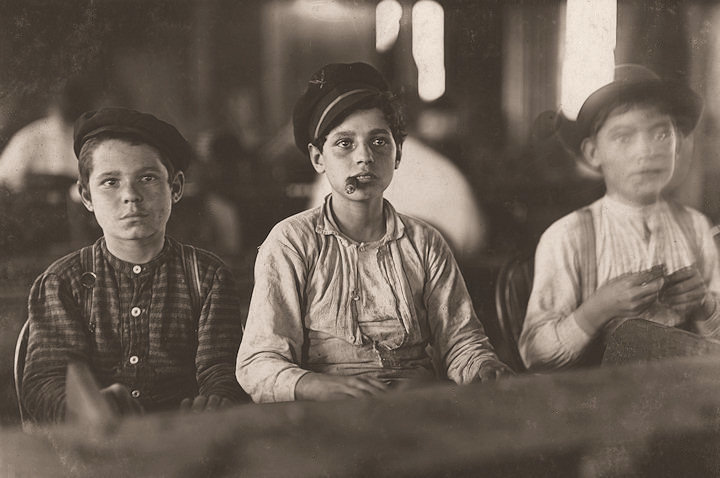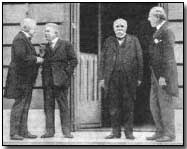Categories
Tags
- "I Have a Dream"
- 1906
- 1929
- 1960s
- 1963
- African-Americans
- African American
- Baby Boom
- Bill Clinton
- Birmingham
- Child Labor
- civil rights
- Civil Rights Movement
- Cold War
- communism
- Discrimination
- economics
- End of Segregation
- finance
- flappers
- Freedom
- Great depression
- Hilary Clinton
- human rights
- impeachment
- Japanese Internment Camp
- LAPD
- Martin Luther King
- Martin Luther King Jr.
- music
- Post WWII Events
- President
- prohibition
- racial discrimination
- Racism
- Richard Nixon
- rights
- segregation
- slavery
- Soviet Union
- Wall Street
- War
- Woodrow Wilson
- World War I
- WWI
Category Archives: Social History
Henry Ford Introduced the Model T, 1909 – My Screenplay
The introduction of Model T by Henry Ford was a turning point that put American to start using popular motor vehicles. Henry’s innovations, including assembly line production and paying his workers a wage proportionate to the cost of the car provided a ready made market for his car to be sold into.
The company was a world’s largest industrial complex along the banks of the Rouge River in Dearborn, Michigan, during the late 1910s and early 1920s. The massive Rouge Plant included all the elements needed for automobile production: a steel mill, glass factory, and automobile assembly line.
The economic system based on mass production and mass consumption came to be called Fordism.
Posted in 1900-1916, 1916-1920, Final Exam Component, Social History
Tagged Ford, Henry Ford, Mode T
Comments Off on Henry Ford Introduced the Model T, 1909 – My Screenplay
Flappers
[kml_flashembed movie="http://www.youtube.com/v/3svvCj4yhYc" width="425" height="350" wmode="transparent" /]The flappers of the 1920s marked the beginning of a revolution of women. During this time, women ditched their conservative feminine looks and went for clothing, makeup and hairstyles that were a far cry from the norm and considered inappropriate at the time. Young women asserted their freedom by voting, driving cars, dancing, drinking, smoking cigarettes, staying out late, and going to “petting parties”.
Flappers of the 1920s are possibly best known for their style. At a time when corsets, long hair and long gowns were the norm, flappers introduced a more boyish look. Young women showed off their legs in short skirts, chopped their hair off into short bobs and wore excessive amounts of makeup. Kohl-rimmed eyes and bee-stung lips set the flappers apart from the rest. Accessories included newsboy caps, cloche hats, layered necklaces and horn-rimmed glasses. High heels came into fashion and dresses were often drop-waisted and knee-length to show off just enough leg when flappers danced.
This video depicts what life was like for a flapper.
Posted in 1920-1932, Cultural History, June 28 assignment, Social History, Uncategorized
Tagged flappers, Freedom, Roaring 20's, Style, Women Revolution
4 Comments
Federal Bureau of Investigation (FBI)

The Federal Bureau of Investigation, formally known as FBI, is an agency of the United States Department of Justice and was formed in 1908. The FBI works as a federal criminal investigative body and an internal intelligence agency. The main motto of FBI is “Fidelity, Bravery, Integrity.” The importance of FBI in American history or in American society is unimaginable.
In 1908 the Congress passed a law that forbade the use of Treasury employees by the Justice Department, so Attorney General Charles Joseph Bonaparte made a new Bureau of Investigation (BOI or BI). In 1935 the Bureau of Investigation changed its name to Federal Bureau of Investigation, or FBI.
Until 1886, there was no organization that have the power to regulate interstate commerce. When the Interstate Commerce Act of 1887 passed, the FBI’s jurisdiction derived from this Act. FBI’s first official job was to visit and make surveys of the houses of prostitution in preparation for enforcing the “White Slave Traffic Act,” or Mann Act, passed on June 25, 1910. Later on, the FBI performed a lot of remarkable federal investigation efficiently that it can be considered as “symbol of trust” in the Americans’ mind.
Posted in 1900-1916, June 29 assignment, Political history, Social History
Tagged FBI, Federal Bureau of Investigation, Justice, Symbol of trust
1 Comment
Radio Broadcast in 1906


 This imge is from http://www.radiocom.net/Fessenden/
This imge is from http://www.radiocom.net/Fessenden/
President George W. Bush celabrated 100years anniversary of the first radio station in Massachusetts. Reginald Aubrey Fessenden got this honor due to his invention of the world’s first radio broad cast. He worked for Thomas Edison in his New Jersey laboratory as a canadian engineer, and he tried to produce the “wireless telegraph” to carry human voice through the air. The first extended broadcast of human voice was transmitted on December 24, 1906 in Brant Rock in Massachusetts. As President mentioned about how the radio station have done the important role in American society, Fessenden had opened the technological improvement as much as the development in people’s standard of living.
Posted in 1900-1916, Cultural History, Social History
Tagged 1906, Fessenden, invention, Radio
4 Comments
Child Labor in Fall River, Massachusetts.
This photo was found under a collection called National Child Labor Committee Collection. The photo was taken by Louis Wickes Hine 1916 who published over 5,000 photos depicting child labor. This 16 year old child whose name was Louis Pelissier was mentally challenged and didn’t know where he was supposed to work so he made his way to a mill and they couldn’t help him. He was a sweeper but the work was too hard for him.
Posted in 1900-1916, June 28 assignment, Social History
Tagged Child Labor, Louis WIckes Hines, Massachusetts, photography
5 Comments
Bonnie and Clyde
 Bonnie Parker (October 1, 1910 – May 23, 1934) and Clyde Barrow (March 24, 1909 – May 23, 1934) were well known outlaws, robbers and criminals who, with their gang, traveled the Central United States during the Great Depression. The photo above was found in their hiding place in Missouri.
Bonnie Parker (October 1, 1910 – May 23, 1934) and Clyde Barrow (March 24, 1909 – May 23, 1934) were well known outlaws, robbers and criminals who, with their gang, traveled the Central United States during the Great Depression. The photo above was found in their hiding place in Missouri.
Their exploits captured the attention of the American public during what is sometimes referred to as the “public enemy era” between 1931 and 1934. Though known today for his dozen-or-so bank robberies, Barrow in fact preferred to rob small stores or rural gas stations. The gang is believed to have killed at least nine police officers and committed several civilian murders. They were eventually ambushed and killed in Louisiana by law officers. The video below is the scene after their death. Bonnie and Clyde have become a symbol of dangerously in love couple and an inspiration for numerous movies, theater plays and songs.
Posted in 1920-1932, June 28 assignment, Social History
Tagged crimes, gangster, the great depression
3 Comments
Child Labor
This is a picture taken by Lewis W. Hine in Tampa, Florida during the early nineteenth century. Hine, an investigator of National Child Labor Committee exposed pictures of many youngsters who were being exploited as a source of cheap labor. The picture reveals young workers who were all under the age of 14 at the cigar making company. These pictures left a great rermark for the Americans and revealed how rapid industrialization and a lack of regulation left these kids in such a state.

Posted in 1900-1916, Economic History, June 29 assignment, Social History
Tagged Child Labor, Exploitation, Industrialization, Lewis W. Hine
6 Comments
League Of Nations
League of Nations was established on February 14 1919 as a result of the First World War. It was spearheaded by the 26th President Woodrow Wilson in his famous ‘fourteen point’ speech. The fourteen point plan outlined plans to reduce imperialism around the world, give colonies freedom and lay the foundations for the League of Nations. The main goals of the League of Nations was to establish international peace and not resort to wars.

http://www.youtube.com/watch?v=b-Uz0e4KJG0
Posted in 1916-1920, June 28 assignment, Political history, Social History, Uncategorized
Tagged 1918, League of Nations, President, WWI
2 Comments
The First Nobel Prizes Awarded – 1901
 Alfred Nobel created dynamite. Since he didn’t want to be remebered as a creator of such a deadly device, Nobel created a will that left a bulk of his fortune to the establishment of five prizes; physics, chemistry, medicine or physiology, peace and literature. On December 10, 1901, five years after Alfred Nobel’s death, the first five Nobel Prizes were awarded. Since it’s only awarded to people who had done a great deed, we can easily see and recorgnize who has done what. Also awards usually boost people to achieve a better result.
Alfred Nobel created dynamite. Since he didn’t want to be remebered as a creator of such a deadly device, Nobel created a will that left a bulk of his fortune to the establishment of five prizes; physics, chemistry, medicine or physiology, peace and literature. On December 10, 1901, five years after Alfred Nobel’s death, the first five Nobel Prizes were awarded. Since it’s only awarded to people who had done a great deed, we can easily see and recorgnize who has done what. Also awards usually boost people to achieve a better result.
Posted in 1900-1916, Economic History, June 28 assignment, Social History
Tagged 1901, award, Nobel, Prize
1 Comment
The Bonus Army March 1932

This picture was taken by Veteran Army Signal Corps photographer Theodor Horydczak in June 1932. Picture location – American Treasures of the Library of Congress: http://www.loc.gov/exhibits/treasures/trm203.html
According to Wikipedia.org, this event was a gathering of approximately 43,000 marchers comprised of 17,000 World War I veterans and their families who protested in Washington, D.C., in summer of 1932. The war veterans demanded their cash bonuses which were granted to them eight years earlier via the Adjusted Service Certificate Law of 1924. Each of these certificates was issued only to qualified soldiers and had a face value equal to the soldier’s promised payment, plus compound interest. The issue was that the certificates, just like bonds, matured twenty years from the date of original issuance. In other words, the veterans could not receive their money until 1945.
Most of the Bonus Army camped in a Hooverville on the Anacostia Flats, a muddy area across the Anacostia River from the federal core of Washington. In July, 1932, President Hoover ordered the Army to forcibly remove the veterans. They were forced back to their camp sites. During this time hundreds of veterans were injured and several killed.
Posted in 1920-1932, Economic History, June 28 assignment, Political history, Social History
Tagged Bonus Army, cash bonus, President Hoover, veterans
1 Comment




